Slavic or Slavonicstudies, also known as Slavistics is the academic field of area studies concerned with Slavic areas, languages, literature, history, and culture. Originally, a Slavist or Slavicist was primarily a linguist or philologist researching Slavistics. Increasingly, historians, social scientists, and other humanists who study Slavic area cultures and societies have been included in this rubric.

The University of Belgrade is a public university in Serbia. It is the oldest and largest modern university in Serbia.

Vladimir Ćorović was a Serbian historian, university professor, author, and academic. His bibliography consists of more than 1000 works. Several of his books on the history of Serbs, Bosnia, Yugoslavia and Herzegovina uprising are considered to be definitive works on the subject.

Milan Rešetar was a linguist, historian and literary critic from Dubrovnik.

The University of Banja Luka is the second-oldest university in Bosnia and Herzegovina. A public university, it is the flagship institution of higher education in Republika Srpska, one of two entities of Bosnia and Herzegovina. As of 2018–19 school year, there are 11,186 enrolled students.

Jovan Ajduković is a Serbian linguist.
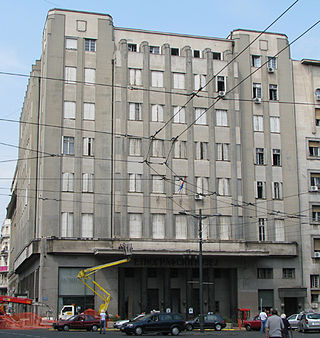
The Ethnographic Museum is a museum located in Belgrade, the capital of Serbia. It is one of the oldest museums in the Balkans. The Ethnographic Museum in Belgrade fulfills its mission together with the efforts of various stakeholders in the domain of presentation, revitalization and development of crafts in Serbia.
Ivan Klajn was a Serbian linguist, philologist and language historian, with primary interest in Romance languages and Serbian. He was a regular member of the Serbian Academy of Sciences and Arts, and the editor-in-chief of the Matica srpska's journal Jezik danas. Through his paternal family, which lived in Vukovar for generations, he was of Croatian-Jewish descent.

The University of Belgrade Faculty of Economics is one of the educational institutions of the University of Belgrade, Serbia. The building is located in the city center of Belgrade, in the Savski Venac municipality. The Belgrade's School of Economics is Serbia's leading educational institution in business and economics.
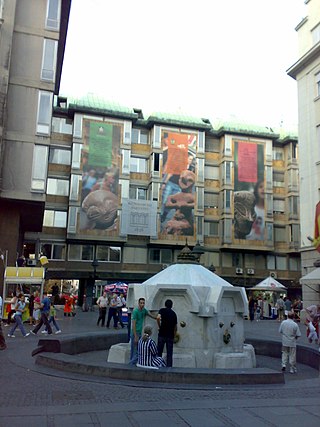
The University of Belgrade Faculty of Philosophy, established in 1838 within the Belgrade Higher School, is the oldest Faculty at the University of Belgrade. It is a modern social science education institution, adapting to current educational trends worldwide.The Faculty building is located at the meeting point of the Čika-Ljubina with the Knez Mihailova Street, the main pedestrian and shopping zone in Belgrade, Stari Grad.

The University of Belgrade School of Electrical Engineering also known as Faculty of Electrical Engineering is a constituent body of the University of Belgrade. The word Faculty in Europe stands for an academic institution, the sub-unit inside the university.

The Belgrade Faculty of Medicine is a constituent institution of the University of Belgrade, which offers a wide range of academic courses in Serbian and English, including specialist practice within a network of hospitals, institutes and medical clinics. The School of Medicine includes 40 departments with over 200 professorships.

The Faculty of Architecture is one of the 31 schools of the University of Belgrade. It shares the building with Faculties of Civil Engineering and Electrical Engineering. The Faculty of Architecture is made up of three Departments: Architecture, Urban Planning and Architectural Technologies.
The University of Montenegro Faculty of Philosophy is one of the educational institutions of the University of Montenegro. The building is located in Nikšić, close to the city center.
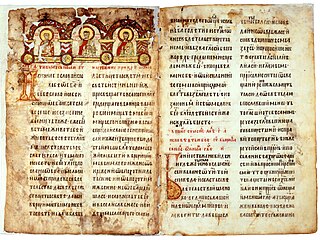
Serbian studies or Serbistics is an academic discipline within Slavic studies which is focused on the study of Serbian language, literature, history and culture. Within Slavic studies it belongs to the South Slavic subgroup.
Infotheca: Journal for Digital Humanities is a multidisciplinary open-access journal, which has been publishing original papers since 2000. It is published biannually.

The Faculty of Organisational Sciences of the University in Belgrade is one of the first-tier educational institutions of the University of Belgrade, Serbia.
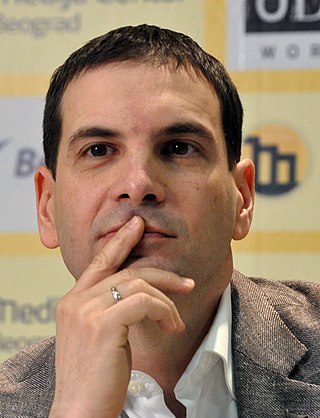
Miloš Jovanović is a Serbian politician, lawyer, and a political scientist. He is the president of the New Democratic Party of Serbia, and a docent at the Faculty of Law, University of Belgrade. He was a presidential candidate in the 2022 election.
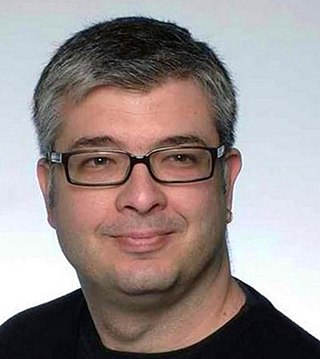
Adam Sofronijević is a Serbian library information specialist and university professor. He received several national awards for his work, worked as an organizer of a number of scientific and professional lectures and projects of national importance in the field of digitization in culture.

Ivanka Popović is a Serbian professor and the incumbent rector of the University of Belgrade since October 1, 2018. She authored and co-authored more than 85 scientific documents.



















